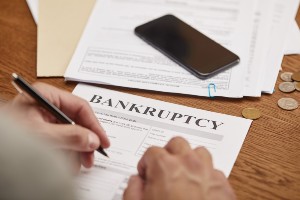What you do in the weeks and months leading up to filing for bankruptcy can have a significant impact on how your case is handled. As a matter of fact, there are things you can do during that time period that could cause your bankruptcy to be denied.
What Will the Bankruptcy Trustee Consider About Assets You Recently Sold Just Before You Filed for Bankruptcy?
Bankruptcy courts consider assets something that need to be sold to pay creditors without favor given to one creditor or another. If you choose to sell an asset to pay a loan and then you declare bankruptcy, even if your intentions were good, it can backfire.
Your trustee will examine transfers and sales you made just prior to filing and if he or she thinks the asset was not handled properly, it could be seized from whomever received the asset. You might also be penalized or denied the right to discharge your debt, especially if it looks like you “sold” your asset to someone in an effort to hide it from the bankruptcy court.
If you are concerned about your bankruptcy filing and how you handled your assets leading up to filing, here’s what you need to know:
Your bankruptcy trustee will compare the proceeds you received from a sale of an item to fair market value. If he or she believes the sale was unfair, action might be taken to undo the sale. In some cases this can work in your favor because you will receive a fair price for the item instead of the low price you originally agreed to. Of course, these profits will be passed on to your creditors, but it means more of your debt will be paid.
Your Actions over the Last Two Years Can Be Examined
Trustees typically have access to sales and debts for two years prior to the bankruptcy filing date. If fraud is suspected, the trustee can look beyond two years. He or she can sue to recover anything that was improperly sold and the person to whom you sold the property becomes a creditor and is able to file a claim against you in bankruptcy court.
Your Use of the Money from the Sale of an Asset is Evaluated
How you use the money from an improper sale also matters. For instance, if you used it to pay off a creditor, the trustee will recover it so it can be spread amongst all creditors. And if you used the proceeds from the sale of property to purchase exempt property, the trustee can disallow the sale and seize the asset.
Every case is different and every bankruptcy is treated on an individual basis by the court. Determining whether an asset was sold improperly or not can be a complicated process, so it helps to have an attorney on your side defending your actions.
If you believe bankruptcy might be on the horizon and you have questions about what you can and cannot sell, we can help. Contact the Law Offices of Robert M. Geller at 813.254.5696 to discuss your financial situation and determine what you can do to protect your rights.



























![Signs That You May Need to File Bankruptcy [Infographic]](https://djml3wkzi26ea.cloudfront.net/wp-content/uploads/2021/01/signs-chap7-v-chap13.jpg)
![How To File for Bankruptcy [Infographic]](https://djml3wkzi26ea.cloudfront.net/wp-content/uploads/2020/07/bankruptcy-steps-infographic-web.jpg)










